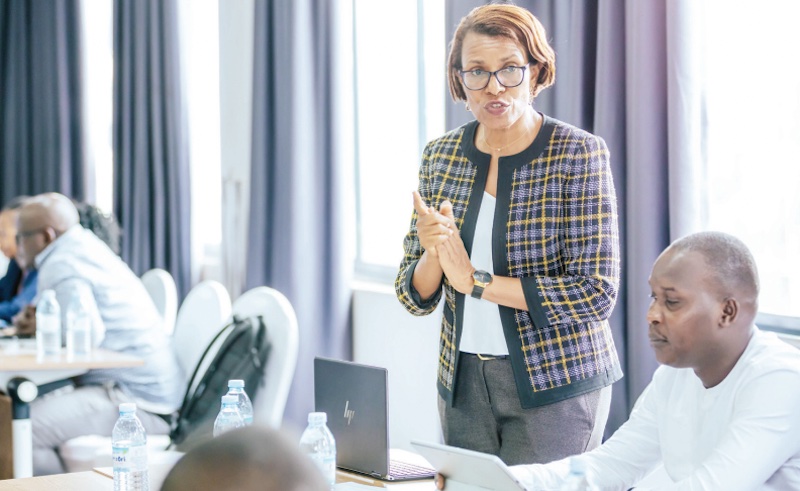
Screenshot
Uganda’s tourism sector is entering a new phase of coordinated and strategic development with government agencies, private-sector actors and development partners uniting to harmonise priorities and accelerate growth.
This renewed collaboration was the focus of a high-level stakeholder workshop held in Kampala, convened under the Sustainable Business for Uganda (SB4U) project; a four-year European Union–funded initiative implemented by the International Trade Centre (ITC).
The project aims to streamline policy interventions, investment diagnostics and investment development across three sectors of tourism, logistics and grain. But tourism, one of Uganda’s highest-potential industries, is receiving heightened attention as the country works towards the ambitious tenfold growth target outlined under Vision 2040 and the National Development Plan IV (NDP IV).
Speaking at the workshop, Jacqueline Pimer, Project Coordinator for the SB4U project, said the meeting was designed to bring all key actors into one room to consolidate existing strategies created by government, private associations and donor agencies.
“We want to create a single, harmonised working platform and work plan that will be updated annually,” she explained.
“This will allow us to track what government is delivering, what the private sector is undertaking and how development partners are supporting these efforts.”
Pimer revealed that a recent diagnostic assessment of Uganda’s tourism sector uncovered numerous parallel initiatives operating with different targets and priorities, fragmentation that has limited impact and led to duplication.
“Uganda already has a Tourism Master Plan, a new Tourism Policy and several ongoing development programmes but without coordination, the opportunities remain under exploited,” she noted.
The workshop, she said, aims to ensure all actors align around shared priorities and channel resources toward catalytic interventions.
“Government cannot continue to prepare a meal that the intended beneficiaries do not want. Tourism is a private-sector–driven industry, and our interventions must be guided by private- sector priorities.”
The private sector echoed this call for coordinated implementation. Denis Ntege, a tour operator and Secretary of the Uganda Tourism Association (UTA), highlighted that private tourism actors were evaluating the Tourism Master Plan and Tourism Development Plan to extract the most urgent priorities for the coming financial year.
“We are analysing marketing, governance and regulation, quality assurance, culture and conservation. As tour operators, our primary focus is market penetration whereby we are present in major tourism markets and wooing potential visitors. But we also need strong conservation and public-private partnerships where each side supports where it is strongest,” he said.
For government, the workshop marked a timely opportunity to bridge funding gaps that have stalled key tourism interventions. Denis Ojok, Senior Statistician at the Ministry of Tourism, Wildlife and Antiquities acknowledged that while several priorities are clearly defined under NDP IV, many remain underfunded.
“We welcome ITC’s support to help us implement activities such as promoting destination Uganda, reviewing the tourism policy and upgrading the Tourism Master Plan. The ITC intends to bring in about 8 million Euros specifically for tourism development and private-sector- driven market initiatives,” Ojok said.
The Uganda Tourism Board (UTB) emphasised the importance of aligning budget priorities for the 2026/27 financial year with private-sector needs. Samora Semakula, UTB’s Quality Assurance Manager, said the discussions revealed critical gaps in capacity across the tourism value chain that must be addressed to achieve the country’s long-term tourism ambitions.
Guest speaker Lily Ajarova, Senior Presidential Advisor on Tourism, underscored tourism’s role as a driver of economic recovery and long-term transformation. She reaffirmed the government’s target of achieving tenfold tourism growth within the next decade.
She stressed the need to strengthening and diversifying our tourism products, supporting small, medium and community tourism enterprises and embracing innovations such as experiential driven travel, digital visibility and creative economy to remain relevant and competitive.
jjingoernest1@gmail.com



